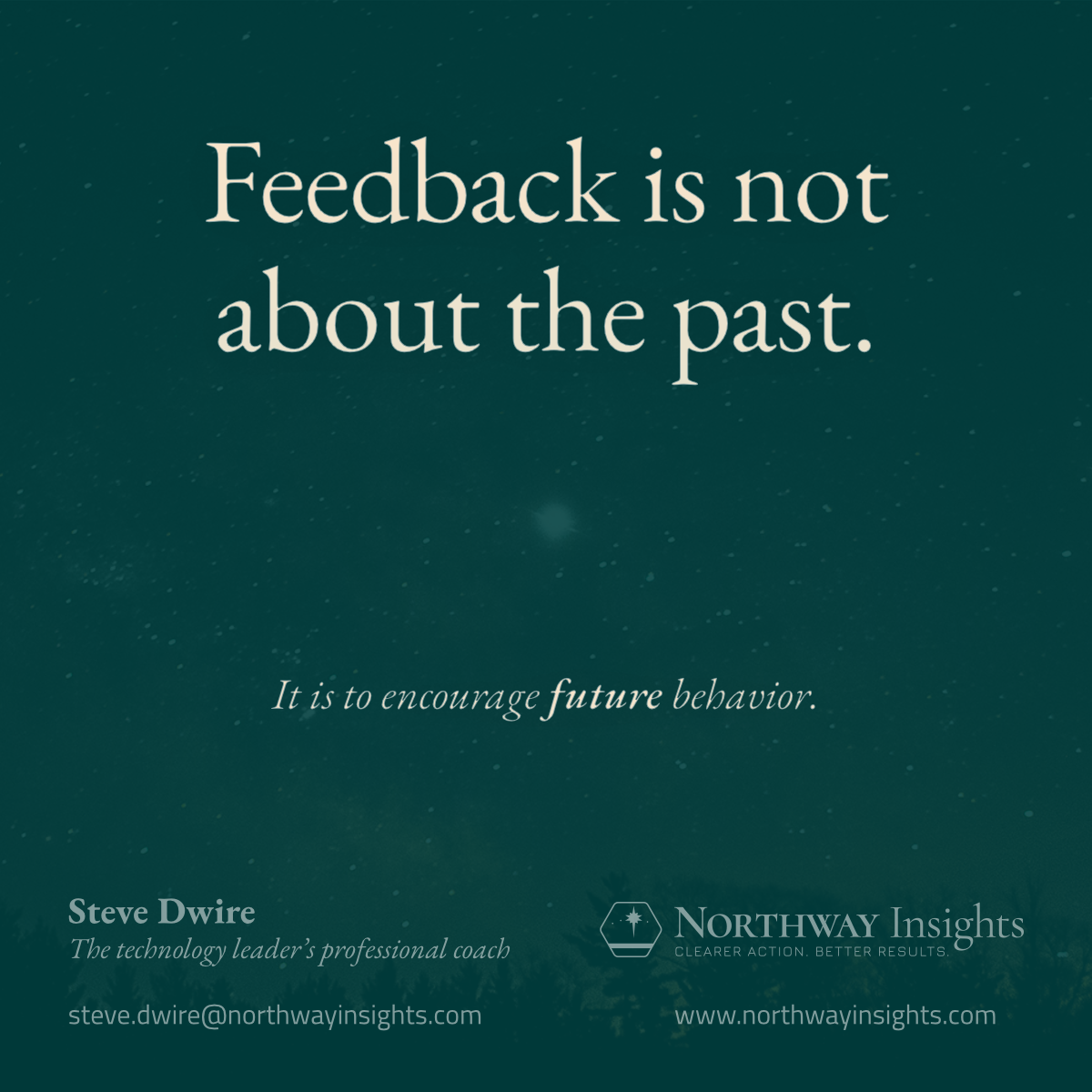“WoooeeeeeeeeEEEEP!”
That’s the sound that introduced the term “feedback” to our vocabulary, and it wasn’t pleasant. A microphone picked up a sound live, and the speaker fed that same sound back into the microphone until it became a deafening squeal.
And a repeated focus on the past drives a similarly unpleasant experience in the feedback we give to others.
Here are some habits that can hurt the effectiveness of the feedback you give:
⛔ Punishing, scolding, or ridiculing
⛔ Making a claim about the person’s ability
⛔ Making a claim about the person’s character
⛔ Describing only the results of the other person’s action
⛔ Waiting for a pattern, and then complaining about the pattern
Better feedback encourages future behavior:
✅ Focus on observable actions
✅ Connect behavior to observable results
✅ Deliver corrective feedback without judgment
✅ Describe the behavior and results in future terms
✅ Keep each instance focused on a single behavior and result
✅ Concentrate most feedback on positive behavior that brings desired results
✅ Believe that the recipient of your feedback can and will exercise positive behavior in the future.
When we remember that the purpose of feedback is to encourage future behavior, we can avoid the pitfalls that make it unpleasant.


Leave a Reply